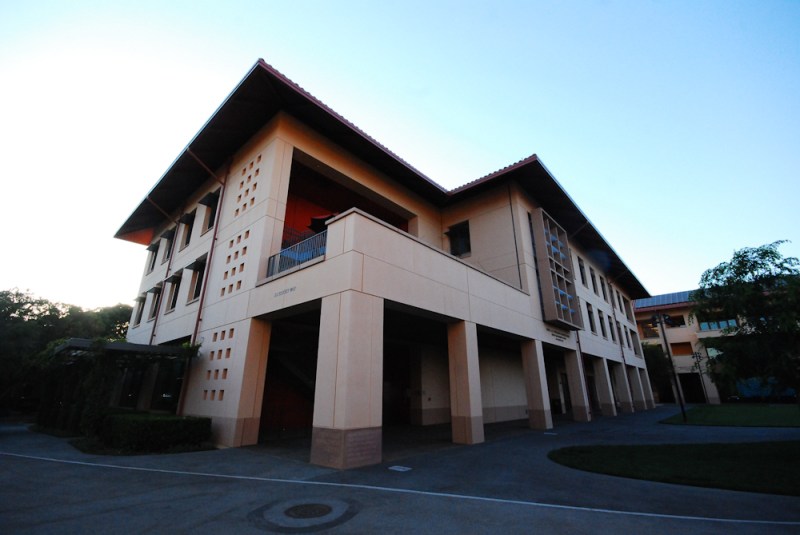Despite Stanford’s proliferation of both finance-oriented student groups and accounting and finance course offerings, the University’s lack of an undergraduate finance, accounting or business major is not unusual, according to professors and University administrators.
Several accounting and finance courses are offered through the management science & engineering (MS&E) and economics departments, and undergraduates are sometimes allowed to enroll in Graduate School of Business (GSB) elective classes, according to GSB Senior Associate Dean for Academic Affairs Madhav Rajan.
“If you look at the top five MBA programs, the only one with an undergraduate program is the Wharton [School of the University of Pennsylvania],” he said. “That is more of an exception than the rule. I think that it is not necessarily appropriate for undergraduates.”
Rajan, who was a professor at Wharton before coming to Stanford, has taught undergraduates in several of his classes and said they were “exceedingly smart.” Though willing to teach undergraduates if given the opportunity, Rajan said that creating a business major at Stanford would be difficult.
“I’m sure undergrads here are great and a lot of faculty would enjoy teaching them. That is not an issue at all,” he said. “The difficulty for us would be getting the faculty to do it because right now we are at capacity. So the biggest cost of doing an undergrad major would be expanding the faculty significantly.”
A liberal education
GSB Assistant Professor of Economics Nicolas Lambert M.S. ’09 Ph.D. ’10 allowed 10 seniors—all computer science majors—to enroll in his GSB class on intermediate microeconomics this year. Almost 250 graduate students also took the class.
“I targeted people with a certain background because there is a fair amount of technical content,” he said. “My group this year is really great. There is no difference in quality, which is because I got people who want to be there. It’s not like we had to sell the course to them.”
Though Lambert said that it would be a “good thing” to bring business school classes to undergraduate students, he advised against creating a business major, as he believes that undergraduates need a background in broader subjects.
“Having a general background is a strength, not a limitation,” he said. “It’s good not being too specialized because it’s the only time in your life when you can afford to do so. Anytime after that, you have to be more focused.”
Vice Provost for Undergraduate Education Harry Elam agreed, noting that Stanford strives to provide students with a well-rounded liberal education.
“We want students to come here and explore in their freshman year, then declare a major in their sophomore year that they’re passionate about and can delve deeply into, not just as a means to an end,” he said. “An undergraduate business major is not something we see that can identify with Stanford.”
Elam noted that there are other opportunities for students to “dip their feet into business,” and emphasized the importance of skills that cannot be taught in business courses.
“How you get life experience, how you understand people’s relationships to one another, how you think critically—all of that informs how you approach business,” he said. “It’s not simply knowing accounting or any aspect of business.”
However, Elam said that in the future, the University will look into facilitating more formal business education experiences for undergraduate students.
“Our hope is that we can offer students additional business classes, like a course in marketing for undergraduates,” he said. “With the new requirements, we want to create a course with the business school that satisfies the ethics requirement, for example. We’ll see if that course develops.”
Alternative opportunities
According to Rajan, only about 17 percent of the approximately 396 students in each incoming class at the GSB have an undergraduate business major, with the majority of students having received undergraduate degrees in majors such as economics, engineering and math.
While a business major is not a requirement for admission to business school, many undergraduates interested in business often search for alternative educational opportunities through campus organizations such as Stanford Student Enterprises (SSE), the Stanford Pre-Business Association (SPBA) and Stanford Women in Business (SWIB).
Every year, SSE holds a Business Leadership Program (BLP), an intensive five-day conference for 50 rising seniors and coterm students. According to BLP General Manager of Development Miller Aaron ’15, the program gives students the opportunity to meet with corporate sponsors, participate in case study workshops and attend lectures by Stanford business professors.
“The BLP is designed to provide students interested in business as a career field the exposure that they are looking for,” Aaron said.
SPBA, Stanford’s largest undergraduate community of business leaders, also offers educational opportunities for prospective business students. SPBA hosts several programs in partnership with the GSB, and holds consulting workshops with representatives from firms including Deloitte, Parthenon and Accenture.
“This group is good for underclassmen who are looking to get their feet wet,” said SPBA Co-President Feyi Lawoyin ’13. “We work as a resource to give students who want some kind of experience.”
Despite her personal interest in business, Lawoyin said that she is not concerned by Stanford’s lack of an undergraduate business major.
“I don’t think that they’re necessarily looked upon very highly in a lot of circumstances,” she said. “I know people at USC who have done well with an undergraduate business major who have said that their major didn’t really do anything.”
